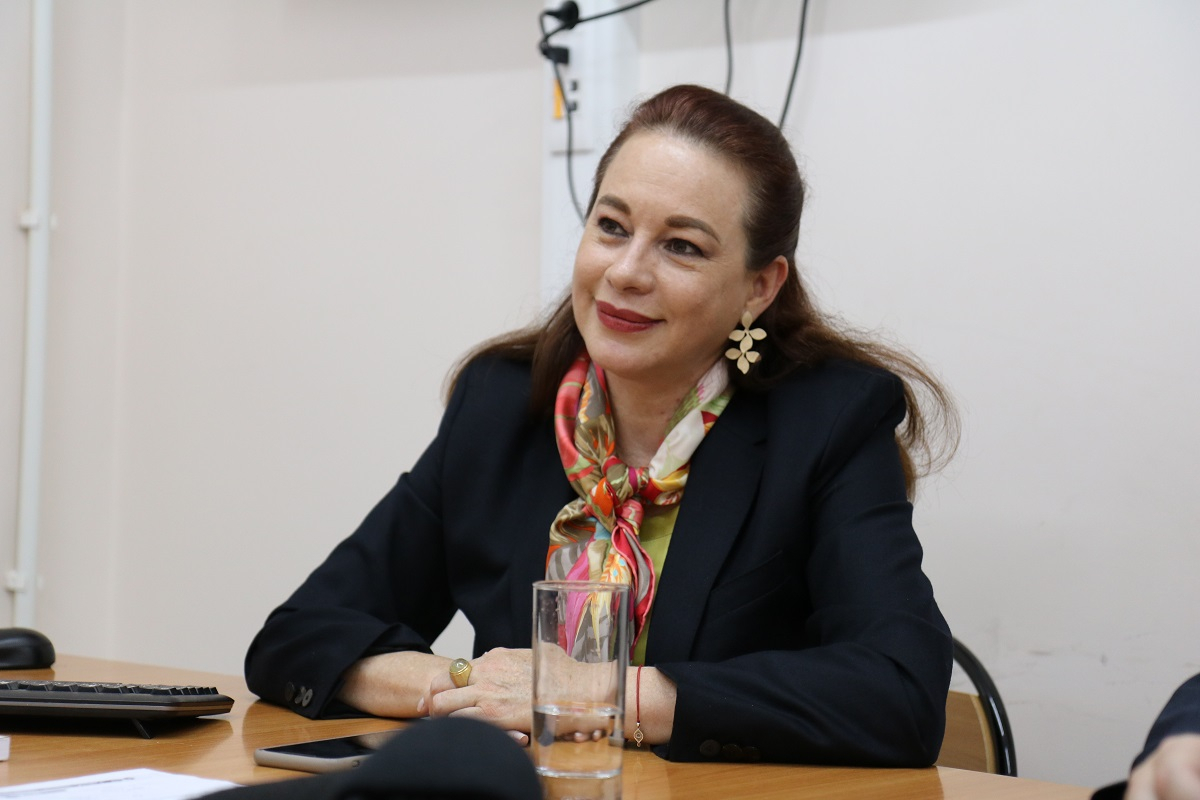María Espinosa Garcés: 'Only joint efforts will help Latin America survive through the crisis triggered out by the COVID-19 pandemic’

‘For months, Latin American nations have appeared disable to coordinate their actions since the outburst of the pandemic. Today, they are competing for vaccines,’ pointed out María Fernanda Espinosa Garcés during the 5th International Forum ‘Russia and Ibero-America in a Globalizing World: History and Modernity’ held at St Petersburg University. Ms Espinosa Garcés is ex-President of the 73rd session of the United Nations General Assembly, ex-Minister of Foreign Affairs of Ecuador and ex-Minister of National Defence of Ecuador.
In total, Latin America accounts for 30% of the global number of infectious cases, said María Espinosa Garcés. On average, 28 % of the population has become vaccinated across the continent. However, this amount, according to Ms Espinosa Garcés, is not enough for herd immunity. The vaccine remains unavailable for the population in many segments of society.
‘The crisis attributed to the pandemic has amplified the already existing economic and political tension in several states. Latin America appeared unable to take collective actions to respond to the challenge. In some nations, it has produced quite a dramatic effect. In others, it has appeared not as severe as it could be. But by and large, all of them have faced a shortage of hospital beds and the failure of the vaccine distribution mechanism,’ explained María Espinosa Garcés.
The pandemic is like a magnifying glass. It has revealed the itching injuries on the body of the Ibero-American society. Social inequality, lack of representation of certain social groups in government bodies, infringement of women and indigenous population rights, and domestic violence are few to mention.
María Fernanda Espinosa Garcés, ex-President of the 73rd UN General Assembly, ex-Minister of Foreign Affairs of Ecuador and ex-Minister of National Defence of Ecuador
María Fernanda Espinosa Garcés believes that Latin America needs joint efforts and sustainable cooperation in economics and communication of all its nations to confront the coronavirus crisis. Thus, the recent CELAC (the Community of Latin American and Caribbean States) meeting has adopted the sanitation programme for several dozens of states in the region. Moreover, significant provisions have been drawn out within CEPAL (the United Nations Economic Commission for Latin America and the Caribbean). Their particular requirements are to ensure technical maintenance in the framework of the contracts for vaccine production.

